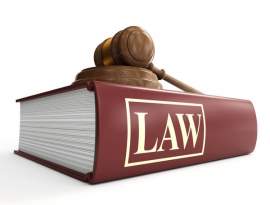
Understanding Child Support

Family Forms
What is Child Support?
A child support payment ordered by the presiding court will be required to be paid varying on specific circumstance within divorces, separations, and dissolution(s) of marriage. Child support regulations assume that all children live primarily with one parent; child support payments are intended to include the corollary stipulations in which the determination of physical custody or sole custody exist - other factors that may affect a child support order is issued by a court.
Child Support and Paternity
Legal permission granted in order to mandate decisions in conjunction to the establishment of the implied wellbeing, safety, and benefit with regard to a child produced by a marriage. Only upon the determination of paternity will a prospective child support payment be expected to be fulfilled by a biological parent. As a result of the growing adoption and foster rate on both an international and domestic level alike, the notion of paternity is not specific to birthparents. However, upon the birth of a child, the birthparents are required to sign the accompanying birth certificate; this authenticates and identifies them as the maternal and paternal units with the regard to the child. Paternity –with regard to child support payments - can also include additional variables, such as financial and parental support with regard to the expenses and responsibility of child-rearing; when applicable, benefits incurred by the father, the transfer of assets, and insurance coverage with regard to a child will be investigated.
Conditions of Child Support
Child support is typically awarded to the custodial parent, which is classified as the parent for whom the implied guardianship of a child is a responsibility:
Custody
Sole custody is the expressed permission of custodianship given to a single birthparent in lieu of the other birthparent; parents who are not awarded sole custody will be required to satisfy child support payments. Joint custody is defined as the sharing of custodianship responsibility between the two birthparents involved; in the event that the establishment of the terms latent within a specific joint custody ruling, compensatory child support payments may be instituted.
Child Support and Taxation
Child support payments cannot be taxed by the state on the part of the parent making child support payments, nor can child support payments be considered as tax deductions of the part of the parent receiving child support payments.
Court Mandated Child Support
The court can appoint a consultant such as a forensic psychiatrist, psychologist or social worker in order to determine the terms outlining the process of child support payments. The court-appointed assessor will provide information with regard to the family involved in the custody case in question. The evaluator is asked to speak with family members and other mental health professionals who will be – or have been - working with family. The counselor will then be asked to send a report to the court; the counselor may also be asked to serve as a witness in the case. This substantiation may provide presentation of economic status with regard to the eligibility to satisfy child support payments.
NEXT: Visitation Rights At A Glance





















